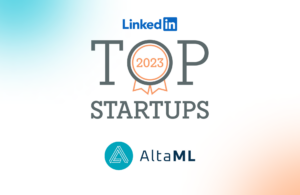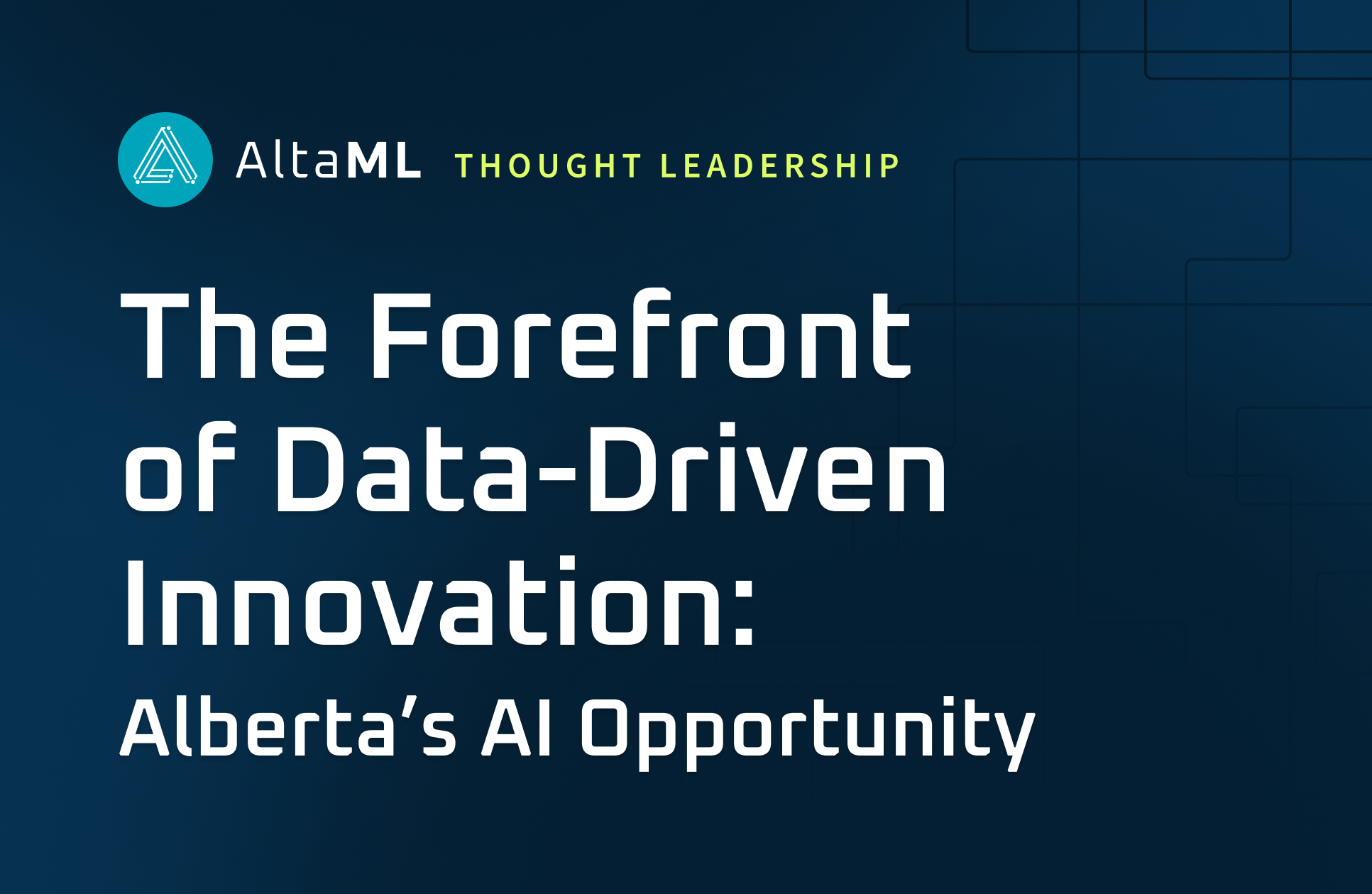The Forefront of Data-Driven Innovation: Alberta’s AI Opportunity
March 18, 2022
•
3 min read
Cory Janssen
Co-Founder & Co-CEO
Data-driven innovation is transforming the way we live and work, and holds the promise, through artificial intelligence (AI) to help solve the world’s most complex problems. AI is expected to add as much as $15.7 trillion to the global economy by 2030.
Globally, big tech positions itself as leaders through their ability to extract vast amounts of value from intangibles, especially data. The rise of the intangible data economy now accounts for over 80% of value for the largest publicly traded companies. Economies that are investing into the data economy are also showing growth in total factor productivity, which suggests that investments into intangible data also supports long-term economic growth.
But what does this mean for Alberta’s global competitive advantage?
Innovation as an engine of economic growth is an interplay of academia, industry and government. With a strong foundation in AI research as well as in applied AI here in the province, there is an enormous opportunity for organizations to get a major head start in integrating AI into their operations. Many have already begun the hard work of digital transformation and AI adoption and are seeing the gains that will enable them to remain at the global forefront.
Enabling Innovation, Policy and Education
The starting point for data-driven innovation is access to data—lots of it. But in many jurisdictions, frankly, including Alberta, valuable datasets remain siloed within their respective organizations, limiting collaborative innovation and knowledge-sharing.
Imagine the complex problems we could solve if academia, government, large enterprise, and startups could better share data in an ethical and responsible way. It would have a transformative impact on the provincial innovation ecosystem and empower us to solve Canada’s, no, the world’s most important problems. However, this cannot take place without policies that enable data-driven innovation working in tandem with education around responsible and ethical implementation.
Alberta’s Personal Information Protection Act (PIPA) is the privacy law that allows organizations to collect data for reasonable purposes and also provides a right to access an individual’s personal information. PIPA was last updated in 2004—think of that context, the iPhone wasn’t even invented until 2007! Given the change of the last 20 years, it isn’t hard to see how legislators could address challenges surrounding the collection of consent, especially within the sphere of AI, as well as consider alternative methods for obtaining consent.
There are many valid concerns about data and the growing importance of AI and data in our society. Some of our routine activities involve data collection whether through apps, loyalty cards or other mechanisms, and we may not have fully considered the implications of our consent. In other contexts, such as banking or healthcare, we tend to be more aware of the importance of data privacy. Public understanding of data privacy and consent vary and as data collection continues, education around data literacy will be necessary to remove barriers of understanding and instill trust in the process.
There are many beneficial applications of AI that do not involve any private individual personal data. What we need is the aggregate, anonymized data. There is a misconception that data usage is akin to identity theft. But an AI model doesn’t need your name, address, SIN. In a health care context, when individuals realize that data can improve their treatment and potentially save lives, their fears diminish significantly
So yes, policies are important, but this is a team effort. Education and policy together, is key to building trust and empowering the public to make informed decisions.
Responsible Artificial Intelligence
Artificial Intelligence is a tool, and its impact depends on how it’s utilized. In the context of applied AI—meaning AI in use—it is imperative that organizations developing and using AI have governance frameworks for its use to ensure that all stakeholders can share in the benefits. Responsible AI (RAI) comprises established principles such as inclusive growth, fairness, explainability, safety, and accountability, along with an implementation framework. Its goal is to prevent harm resulting from AI use, whether that harm is intentional, unintentional, or linked to systemic inequalities
At AltaML, we aim to harness applied AI to elevate human potential, emphasizing AI for good. We actively integrate responsible AI practices throughout our processes and across our organization to guarantee the absence of any harm stemming from our AI development. We are also big believers in the power of collaborative innovation, to bring multiple perspectives together to do things differently, and better. Knowledge sharing among industry, academia and legislators breaks down silos and will ultimately help us all as citizens.
Alberta has a strong history of leveraging our assets to drive our economy. In recent years, we’ve witnessed the emergence of the intangible data economy, and Alberta is poised to lead globally once more. The safe and ethical use of data benefits Albertans and can help solve our most complex issues, but only if we focus on both policy and education, and only if we have collaboration between the private sector and government.
This is a natural evolution of Alberta’s legacy of being industry trail blazers and opens a world of possibilities to empower the next generation of problem solvers—but only if we seize the opportunity in front of us.
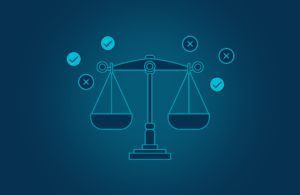 Navigating Bias in AI with Open-Source Toolkits
Navigating Bias in AI with Open-Source Toolkits
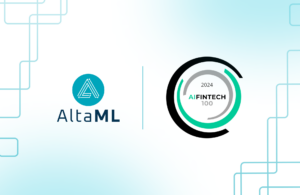 AltaML Secures Spot on AIFinTech100 for Consecutive Year
AltaML Secures Spot on AIFinTech100 for Consecutive Year
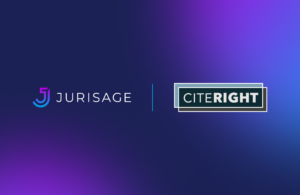 Jurisage and CiteRight Finalize Merger, Become Jurisage Group Inc.
Jurisage and CiteRight Finalize Merger, Become Jurisage Group Inc.
